New research from Warranty Solutions Group (WSG) highlights the rising cost of electric vehicle (EV) repairs, revealing that the largest EV warranty claim made between 2023 and 2024 was a £5,000 replacement transfer box and electric drive for an Audi E-Tron Sportback Quattro.
The second-highest claim came from a Nissan Leaf E Plus N-Tec for a £3,654.35 radio unit, followed by a £3,000 heater fan motor replacement on a Tesla Model X 100D.
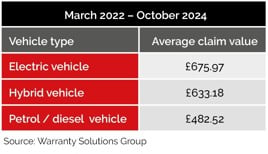 WSG’s analysis of 800 EV warranty claims from March 2022 to October 2024 shows that the average claim for an EV was £675.97, significantly higher than the average claims for hybrid vehicles (£633.18) and internal combustion engine (ICE) vehicles (£482.52).
WSG’s analysis of 800 EV warranty claims from March 2022 to October 2024 shows that the average claim for an EV was £675.97, significantly higher than the average claims for hybrid vehicles (£633.18) and internal combustion engine (ICE) vehicles (£482.52).
New research from Warranty Solutions Group (WSG) highlights the rising cost of electric vehicle (EV) repairs, revealing that the largest EV warranty claim made between 2023 and 2024 was a £5,000 replacement transfer box and electric drive for an Audi E-Tron Sportback Quattro.
The second-highest claim came from a Nissan Leaf E Plus N-Tec for a £3,654.35 radio unit, followed by a £3,000 heater fan motor replacement on a Tesla Model X 100D.
 WSG’s analysis of 800 EV warranty claims from March 2022 to October 2024 shows that the average claim for an EV was £675.97, significantly higher than the average claims for hybrid vehicles (£633.18) and internal combustion engine (ICE) vehicles (£482.52).
WSG’s analysis of 800 EV warranty claims from March 2022 to October 2024 shows that the average claim for an EV was £675.97, significantly higher than the average claims for hybrid vehicles (£633.18) and internal combustion engine (ICE) vehicles (£482.52).
According to Steph Newbery, group director of WSG, EV repairs are more costly due to the complexity and cost of key components.
“The battery is the most expensive component in an EV and if it needs to be replaced, the costs can be significant due to its complexity, size, and the expensive materials used, like lithium and cobalt,” Newbery explained.
Additionally, she noted that EV-specific components such as electric motors and power electronics are not as mass-produced as traditional car parts, driving up costs. Lightweight materials like aluminium and carbon fibre, used in some EVs to offset the weight of the battery, also make repairs more expensive compared to the steel used in ICE vehicles.
Among the most expensive faults reported were battery charge control modules, averaging £1,311.12, high voltage water heaters at £914.76, warning lights at £875, and in-car infotainment systems costing £860.63. Battery charge control modules were the most common issue, followed by power distribution boxes and warning lights.
One of the key issues EV owners face is battery degradation, particularly when rapid charging is used frequently. This can lead to faster-than-expected loss of battery capacity, raising concerns over costly battery replacements.
Lithium-ion batteries, the most common type used in EVs, degrade over time, with researchers estimating a 2.3% annual decline in capacity. Climate also plays a role - batteries in warmer regions like Florida last around 5.2 years, while in colder areas like Alaska, they can last up to 13.3 years.
Newbery noted the importance of dealers educating buyers on the lower ongoing operational costs of EVs - such as fuel savings and reduced maintenance - while also highlighting the potential high costs of repairs if issues fall outside warranty coverage.
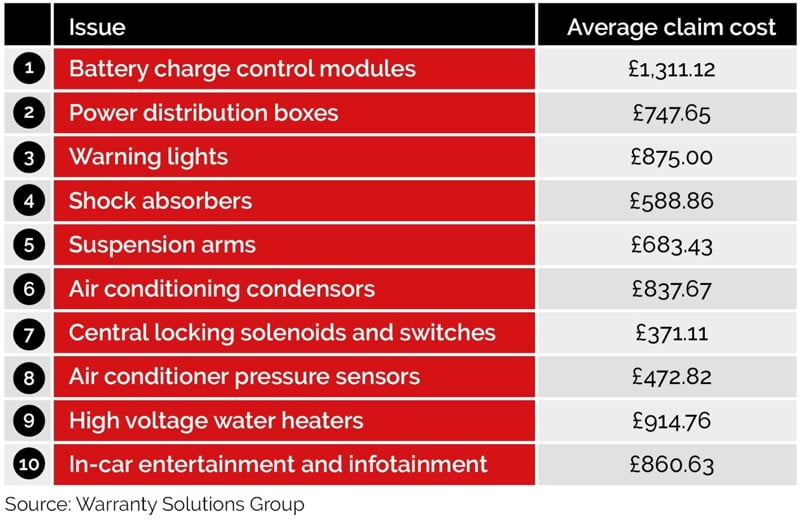
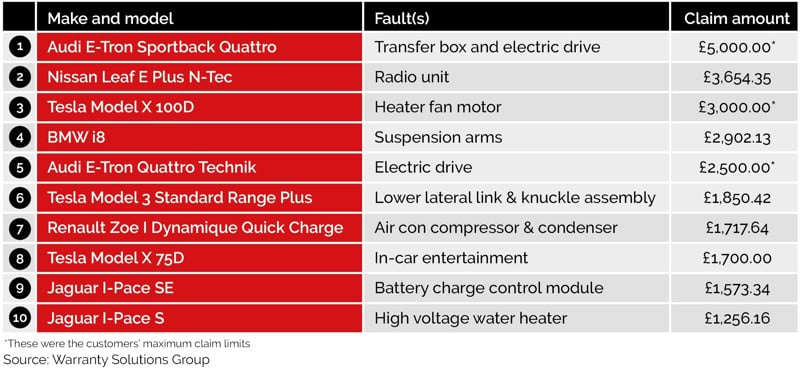
Login to continue reading
Or register with AM-online to keep up to date with the latest UK automotive retail industry news and insight.

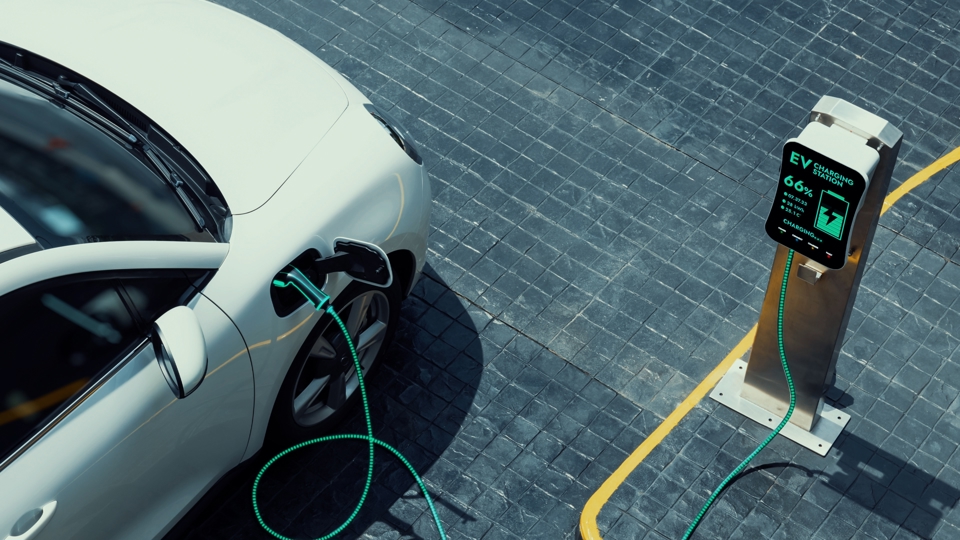


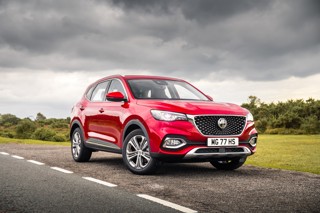















Login to comment
Comments
No comments have been made yet.